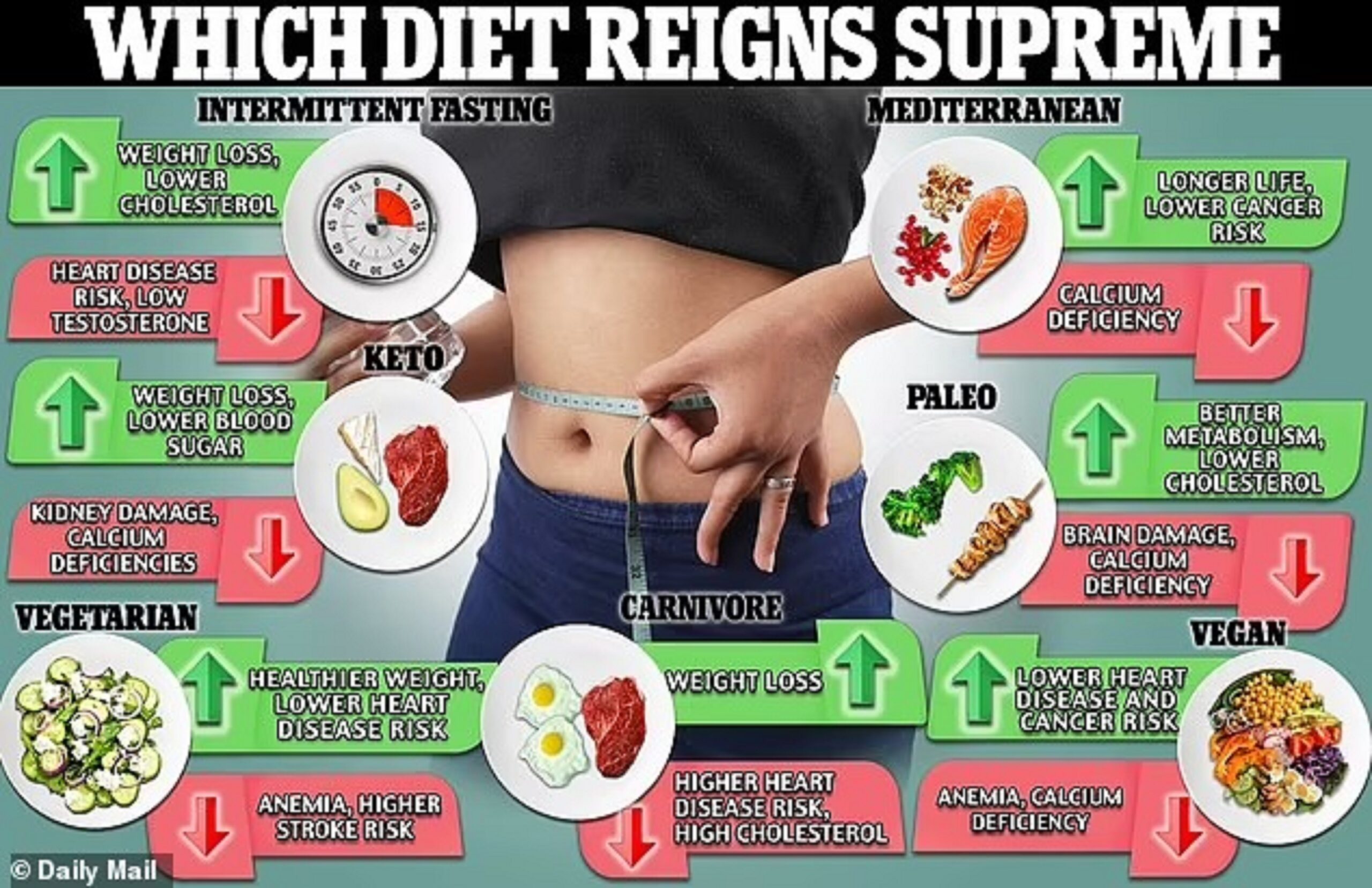In today’s world, popular diet Trends Pros & Cons where wellness has become a lifestyle, diet trends often steal the spotlight. From celebrities endorsing keto meals to social media influencers swearing by intermittent fasting, we are constantly bombarded with promises of quick weight loss, glowing skin, and endless energy. But with so many diet trends floating around, it can be confusing to know which one actually works and whether it’s healthy in the long run.
The truth is every diet has its pros and cons. What works wonders for one person might be unsustainable or even harmful for other. So before jumping into any new diet trend, it’s important to weigh the benefits against the potential drawbacks. These are the some of the popular diets which people follows in their daily routine.

Popular Diets Trends
The Ketogenic (Keto) Diet
The keto diet is a low-carb, high-fat eating plan that pushes the body into a metabolic state called ketosis. In this state, the body burns fat instead of carbohydrates for energy.
Pros:
- Many people see quick results as the body burns fat stores. It leads in effective weight loss.
- High-fat meals keep you fuller for longer, it reduces cravings.
- Some studies suggest keto helps manage insulin sensitivity, making it beneficial for people with type 2 diabetes.
Cons:
- Cutting out most carbs can feel limiting, making it difficult to sustain.
- Eliminating fruits, whole grains, and legumes can lead to a lack of essential vitamins and fibres. It leads to nutrient deficiency.
- In the first few weeks, people often experience headaches, fatigue, and irritability. Which is called the keto flu.
Intermittent Fasting
Intermittent fasting is not about what you eat but when you eat. Popular methods include the 16:8 plan (fast for 16 hours, eat within 8 hours) or the 5:2 plan (eat normally for five days, restrict calories on two days).
Pros:
- No calorie counting or food restrictions just timing your meals. It is simple for many individuals.
- Extended fasting periods naturally reduce calorie intake. It helps in weight loss.
- Research suggests if improves cellular repair and insulin sensitivity. It may boost metabolism.
Cons:
- Skipping meals can make you cranky and low on energy, especially in the beginning. Sometimes it makes the individual hungry and irritated.
- Pregnant women, people with eating disorders, or those with specific medical conditions should avoid it. It is not suitable for everyone.
- Skipping meals during social gatherings can feel isolating. It leads to social challenges.
Plant-Based Diet
A plant-based diet focuses primarily on fruits, vegetables, whole grains, legumes, nuts, and seeds. Some people go fully vegan, while others reduce animal products but don’t eliminate them completely.
Pros:
- It is good for heart health as it isrich in fibre, antioxidants, and healthy fats, plant-based diets lower the risk of heart disease.
- Whole foods are filling but generally lower in calories.so, its help in weight management
- Reducing animal product consumption helps decrease carbon footprint, it is known as environment friendly.
Cons:
- Vitamin B12, iron, omega-3 fatty acids, and protein may be lacking without careful planning, it leads to nutrient gap in the individual.
- Eating out can sometimes be tricky if menus lack plant-based options, so it increases challenges.
- Some vegan packaged products are unhealthy and high in sugar or sodium.so, the individual depends on processed food items.
Paleo Diet
The Paleo diet encourages eating like our ancestors lean on meats, fish, vegetables, fruits, nuts, and seeds, while avoiding grains, dairy, legumes, and processed foods.
Pros:
- Encourages less processed eating. It focuses on whole food
- Many reports suggests that it reduced bloating and clearer skin. It has anti-inflammatory benefits.
- Limiting refined carbs can help prevent sugar spikes.
Cons:
- Cutting out dairy and grains can feel extreme and hard to sustain.
- Lack of whole grains and legumes may reduce fibre intake.
- High reliance on grass-fed meat and organic produce can strain budgets. It is costly for many individuals.
Mediterranean Diet
Inspired by traditional diets in countries like Greece and Italy, this plan emphasizes olive oil, fish, vegetables, whole grains, nuts, and moderate wine consumption.
Pros:
- One of the most researched diets linked to longevity and reduced risk of chronic diseases.
- No extreme restrictions and focuses on moderation. It can be balanced and flexible.
- Rich in omega-3s and unsaturated fats.
Cons:
- Weight loss may not be as rapid compared to keto or fasting. Sometimes it gives slow results.
- Overeating pasta, bread, or wine can backfire. Eating in portion controls the weight.
- Fresh produce, seafood, and olive oil can be expensive.
Which Diet is the Best?
There is no diet which is considered as best, but the ideal diet plan depends on your body, lifestyle, preferences, and long-term goals. A diet that feels like punishment won’t last. The most effective diet is one that nourishes you, fits seamlessly into your routine, and can be maintained without constant struggle.
A golden rule: if a diet trend promises miracle results overnight, take it with a grain of salt. Lasting health comes from consistency, balance, and a mindful relationship with food not with quick fixes.
Conclusion
It’s important to approach diet trends with curiosity rather than blind faith, even though they can be thrilling to try. Each offers special advantages as well as possible drawbacks. Focus on eating a range of full, nutrient-dense meals, exercising, and paying attention to your body rather than following trends. In the end, being healthy is about feeling good, having energy, and forming lifelong habits, not only about losing weight.




